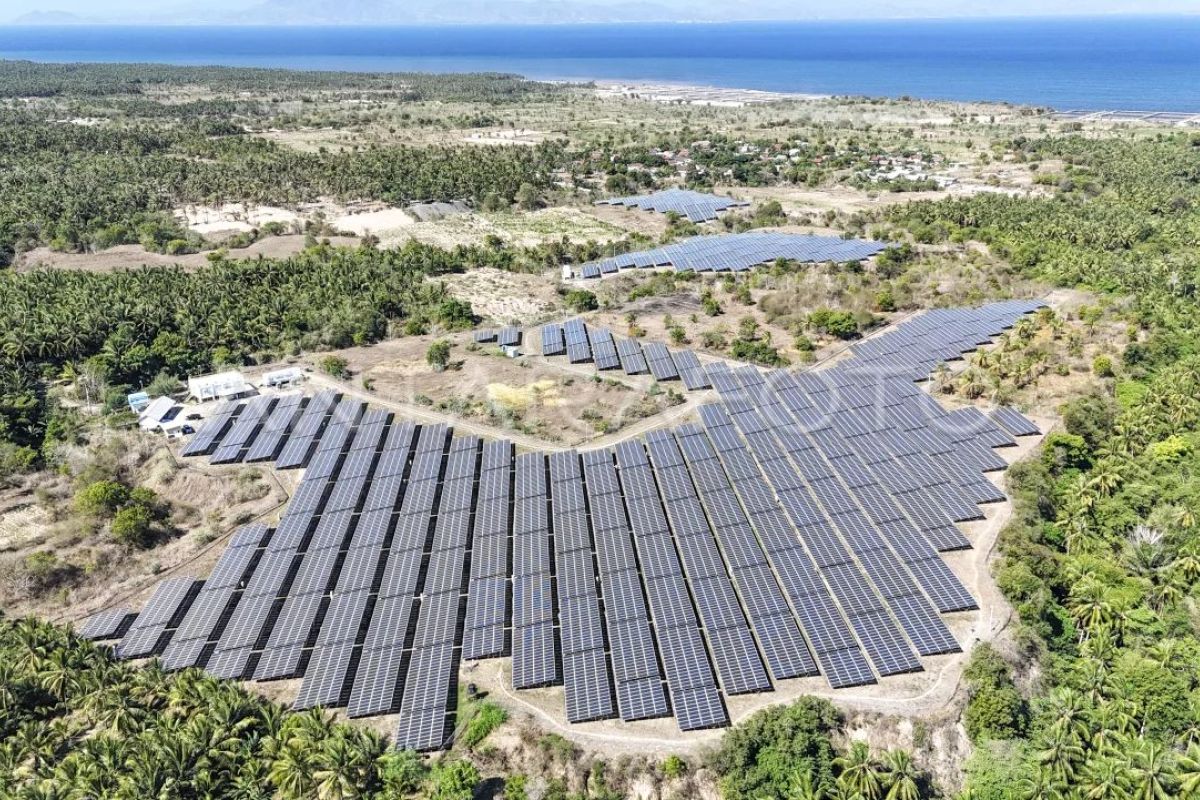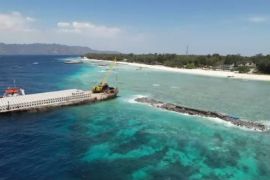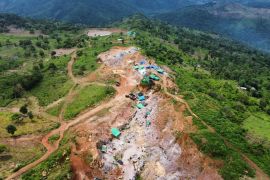Climate change, the demand for energy efficiency, and the need for sustainable development necessitate a new paradigm for designing the future of the economy.
The clean energy transition is now one of the strategic steps that various regions are taking to ensure long-term economic resilience and enhance competitiveness amid global dynamics.
This awareness is beginning to emerge in West Nusa Tenggara (NTB). The provincial government recognizes that the region's economic future can no longer rely on the old ways that are vulnerable to fluctuating commodity prices, mining cycles, and global tourism uncertainty.
NTB is now embarking on a new direction by building a clean energy ecosystem as the foundation for long-term economic growth. This transition is more than a mere policy choice but a strategic necessity for NTB to survive and thrive amidst major global changes.
NTB's vast, yet untapped, clean energy potential forms the basis for this new direction. Solar, wind, biomass, and micro-hydro energy sources were spread across various regions in the province, but they had not yet been integrated into a major strategy to serve as a new engine of the economy.
This situation changed as the need for reliable, affordable, and environmentally friendly energy became increasingly critical. Without a breakthrough, NTB will face obstacles in meeting the energy needs of industry, attracting investment, and maintaining the competitiveness of micro, small, and medium enterprises (MSMEs), as well as other productive sectors.
For that reason, NTB has started to prepare a more directed approach through the development of modern technology-based clean energy projects, partnerships with investors, and integrating the initiative into the regional industrialization agenda.
The new path for clean energy is beyond building power plants; it is about ensuring that the energy becomes the driving force for economic growth and broadly improves the community's welfare.
Building the ecosystem
The first step towards NTB's energy transformation is building a comprehensive and sustainable ecosystem. So far, the use of renewable energy in NTB is still at the level of small, fragmented projects.
Thus, it is still not enough to boost industrialization or to change the economic structure significantly. A more systematic measure is needed to make clean energy the main pillar of development.
NTB has a high intensity of sun rays, almost throughout the year, thereby providing the province with large opportunities to develop solar power both at a large scale and household scale.
Nevertheless, there is a challenge that must be tackled: ensuring a consistent policy, regulatory certainty, and a financing scheme that can attract investors.
Many regions have shown that green energy projects only succeed if the government plays a key role in setting policy direction, providing incentives, and safeguarding the stability of the investment ecosystem.
For NTB, green energy policy must be linked to the industrial development agenda, the establishment of energy self-sufficient villages, and the capacity building of local stakeholders.
Another key step is building an integrated energy infrastructure. Without a strong and modern network, it will be hard for renewable energy to connect to the regional electricity system.
For that reason, modernizing the distribution network, increasing energy storage capacity, and integrating smart grid technology must be part of the province's energy strategy.
This effort is not merely taken to ensure a stable electricity supply, but also to reduce energy costs, making them more competitive for investors.
New industry
The energy transition in NTB must go beyond building power plants. Clean energy must become the driving force for the growth of new industries that can create jobs, expand supply chains, and create added economic value.
Clean energy can be a major draw for the development of light and medium manufacturing industries. Many global companies now require the use of green energy as part of their Environmental, Social, and Governance (ESG) commitments.
If NTB can provide clean energy at an affordable price, it will gain a competitive advantage in attracting export-oriented investment.
The agriculture and fisheries sectors, which have long been the backbone of NTB, can be further advanced through clean energy.
Solar-powered fish cold storage facilities, modern grain dryers, and low-emission processing plants can improve product quality while reducing production costs.
The downstreaming of local commodities like corn, seaweed, dairy milk, and horticulture products can be accelerated with a stable energy supply.
Furthermore, it is also essential to ensure MSMEs, which make up the biggest business sector, get the direct benefits of clean energy. Many MSMEs struggle to grow due to high energy costs and unstable supply.
With an affordable financing scheme, MSMEs can independently install solar panels for production, cold storage, or daily operations, which will eventually increase product competitiveness and open up broader market opportunities.
Furthermore, green energy opens up industry opportunities for NTB, such as solar panel assembly, wind turbine component production, and renewable energy technician services, which can create quality jobs and encourage innovation-based investment.
Governance
Apart from a large investment, the energy transition also needs strong and trustworthy governance.
Many energy projects in various regions fail due to weak governance, poor planning, or a lack of oversight. NTB must learn from these mistakes to prevent the clean energy transition from failing.
First, transparency must be the main principle. Every clean energy investment plan needs to be published to the public, including the investment value, cooperation partners, and the projected benefits.
This openness will build public trust and ensure that energy projects do not only benefit a select few.
Second, energy planning needs to be created based on data and long-term needs projections.
NTB must avoid energy projects that are built without thorough studies or merely following trends. Clean energy projects must address the needs of industry, villages, MSMEs, and the public sector measurably.
Third, continued benefits must be its main orientation. Clean energy must have a direct impact on the community, more than just reducing emissions.
In this regard, energy self-reliant villages must be expanded, the electricity cost for industry must be more competitive, and local human resources' capacity building must be prioritized to reduce dependence on external experts.
With good governance, NTB will not only succeed in building clean energy plants but also create a thorough economic transformation.
Ultimately, the new path of clean energy is a huge opportunity that NTB must seize to break away from dependence on vulnerable sectors.
This energy transformation can become a new foundation for inclusive, modern, and sustainable economic growth.
Great challenges come with greater opportunities. With a strong strategy and governance, NTB can become one of the pioneers of clean energy in Indonesia, while also opening up a more stable economic future for its residents.
Related news: Fueling Indonesia's drive for energy security and green agenda
Related news: Indonesia ensures inclusive energy transition ahead of COP30
Related news: COP30: Indonesia pledges stronger climate action at leader summit
Translator: Abdul Hakim, Raka Adji
Editor: Azis Kurmala
Copyright © ANTARA 2025












